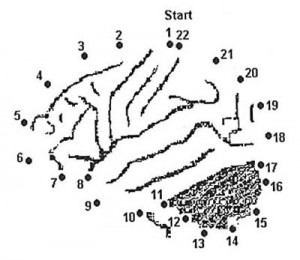 Excellent discussion (and review) of Jonathan Haidt’s The Righteous Mind: Why Good People are Divided by Politics and Religion by John Gray in The New Republic. Gray is skeptical of intellectual history but even more skeptical of scientism, or the attempt to apply scientific reasoning to the complexities of human politics. Summing up concerning evolutionary psychology:
Excellent discussion (and review) of Jonathan Haidt’s The Righteous Mind: Why Good People are Divided by Politics and Religion by John Gray in The New Republic. Gray is skeptical of intellectual history but even more skeptical of scientism, or the attempt to apply scientific reasoning to the complexities of human politics. Summing up concerning evolutionary psychology:
Haidt’s attempt to apply evolutionary psychology is yet one more example of the failures of scientism. There is no line of evolutionary development that connects our hominid ancestors with the emergence of the Tea Party. Human beings are not amoebae that have somehow managed to turn themselves into clever primates. They are animals with a history, part of which consists of creating cultures that are widely divergent. Using evolutionary psychology to explain current political conflicts represents local and ephemeral differences as perennial divisions in the human mind. It is hard to think of a more stultifying exercise in intellectual parochialism.
E.O. Wilson, Sam Harris, and David Sloan Wilson undoubtedly also included. The trouble arises in trying to connect the dots in too simple a contour. Haidt’s observations about flavors of moral feelings among liberals and conservatives is interesting and perhaps useful. But, as Gray suggests, it is where this naturalism ignores the cascading complexities of history that trouble arises. And when it tries to crawl onto the shores of policy and normative ethics, Gray takes even greater exception; the is-ought barrier is unassailable.
There are some assumptions by Gray that could use some critiquing. He quotes Haidt’s favorable perspective on utilitarianism and contrasts it with Berlin’s values pluralism. Gray is skeptical that culture war topics like abortion or gay rights can be cast into a utilitarian form and are better entertained through a recognition that a divergent moral landscape is the inevitable product of the complexities that culture hath wrought. What ought to be done can’t be converged on in any coherent manner because of exactly the kinds of intuitions that Haidt has identified as leading to divergence. While not supporting utilitarianism, I think Gray does a disservice to the moral evolution that we can observe over time, the greatest driver of which is media depictions that play on our natural tendencies towards empathy (Gray chuckles a bit at Haidt’s suggestion that members of Congress get together for garden parties, but building familiarity against contempt is what Haidt is advocating). The dots certainly don’t resolve into simple contours, but stepping back from the page, there are strongly repeating patterns that are closely tied to our evolutionary heritage as social animals. In some cases these resolve into Haidt’s typology of fairness, justice, liberty, loyalty, authority, and sanctity, but in each case there are stronger currents just below them.